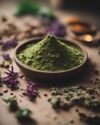
In the 1st century BC, King Herod the Great built a palace in the Judaean desert near Jerusalem. A few years ago, scientists discovered 2000-yearold seeds at the ruins of the palace, and when they planted those seeds, seven date palms grew. During twenty centuries of excruciating desert climate, the life force within those seeds was preserved. There are some seeds that have survived even longer and are available to all of us, the ancient seeds of wisdom we find in the Yoga Sutras.
Thousands of years ago, the great spiritual scientist Patanjali taught his students about a way of life that could transform human existence. He showed them the path to infinity.
Unfortunately, very little is known about who Patanjali was and what he did to achieve this knowledge. However, the 196 seeds of wisdom, the sutras he shared with his students, are with us today.
What is a sutra? It’s not a verse or hymn. Neither is it advice nor a mantra. A sutra is a coded word. Like a seed, it’s an open secret of nature that encapsulates immense wisdom and actionable guidance. One can spend an entire lifetime decoding and demystifying just one sutra. And here, Patanjali gave the world 196 of them! From his Yoga Sutras, I would like to share with you the transformative wisdom of one Sutra – number 33.
Why is Sutra 33 important? By cultivating the four attitudes recommended in this Sutra, we create an inner environment that calms the turbulence in our consciousness. By leading our lives by these attitudes, we cultivate correct thinking, right understanding, and an honest approach to our life. When such is the case, life is enlivened with authenticity.
This story is from the {{IssueName}} edition of {{MagazineName}}.
Start your 7-day Magzter GOLD free trial to access thousands of curated premium stories, and 9,000+ magazines and newspapers.
Already a subscriber ? Sign In
This story is from the {{IssueName}} edition of {{MagazineName}}.
Start your 7-day Magzter GOLD free trial to access thousands of curated premium stories, and 9,000+ magazines and newspapers.
Already a subscriber? Sign In

A Flower from THE HEAVENS
November 14 is Children's Day. This year, SARA BUBBER brings to you a world of forests, magical flowers, festivals, and some animals you may have never seen.

Meeting Phenomenal Women
The author, CHITRA BANERJEE DIVAKARUNI, is interviewed here by TARA KHANDELWAL and MICHELLE D'COSTA about her books on mythology, like The Palace of Illusions, which is a retelling of the Mahabharata from Draupadi's point of view, and The Forest of Enchantments, which is a retelling of the Ramayana, from the eyes of Sita. And there's The Last Queen, which is about Rani Jindan's life.

HERBAL TOOTH POWDERS: Rediscovering Ayurveda's Natural Secrets
SRAVAN BANDA presents a natural herbal tooth powder, offering a holistic approach to oral hygiene, harnessing the power of medicinal herbs.

The Dance of Light and Shadow Lessons from the Dolomites
ALAIN DESVIGNE explores the Dolomites, listed as a UNESCO World Heritage Site in 2009.

FINDING OUR WAY
A Polynesian Explorer's Journey of Discovery

The First Imprint: Understanding PTSD
CHRISTIANNA DEICHMANN is the Director of Education at the Association for Pre and Perinatal Psychology and Health (APPPAH), where she educates both professionals and parents on fostering the most nurturing environments for welcoming new life into the world.

The Tipping Point
In this final conversation of the series, J. FREDERICK ARMENT continues to talk with CHRISTINE JONES about promoting peace in the world.

UNLOCK YOUR POTENTIAL
Take The Brighter Minds Path To Cognitive Development

The Intrinsic Goodness of the Heart
DAAJI shares some thoughts on heartfelt acceptance and all it has to offer. He says, \"It is the heart's intrinsic goodness that allows us to accept everything as part of us.

How Does Fear Affect Our Roles as Mothers? - Neelam Shivhare explores some of the great ancient texts of India on motherhood, compares the behavior of Kaikayi and Yashoda
Neelam Shivhare explores some of the great ancient texts of India on motherhood, compares the behavior of Kaikayi and Yashoda, and realizes the importance of removing fear from our hearts in order to nurture our children.For young women like myself, who are future mothers, I trust we are on the path of becoming selfaware and brutally honest with ourselves. We are creative beings, never forgetting the gifts with which we have been bestowed— the love and tenderness, natural instincts, and intuition to feel the right path. It all lies in the mysterious meanderings of the heart. Are we really listening to our hearts, or confusing the bombarding information on social media with reality?